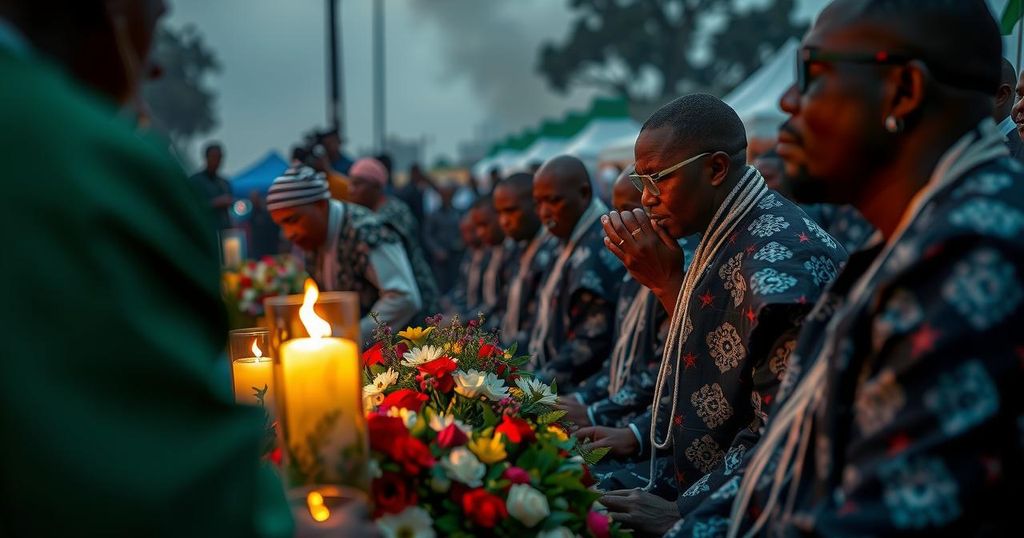Mass Funerals Held for Victims of Fuel Tanker Explosion in Nigeria
In northwestern Nigeria, mass funerals are being held for over 150 victims of a fuel tanker explosion, primarily those who had gathered to collect spilled petrol. The incident, exacerbated by rising poverty and fuel prices, has left many injured, raising the death toll further. Investigations have been launched amidst concerns regarding the country’s infrastructure and safety standards for fuel transportation.
Mass funerals have commenced in northwestern Nigeria for over 150 victims of a recent fuel tanker explosion, which resulted in fatalities primarily among individuals attempting to scoop fuel from a spill on the road. Reports indicate that the death toll has risen to 157, with more than 100 others receiving treatment for severe injuries, raising concerns that the number of deceased may increase further as many victims face critical conditions. Ahmed Idris, a reporter from Al Jazeera, highlighted the precarious situation in which the incident occurred: the tanker, traveling from Kano to Yobe State, overturned near Majiya, resulting in the catastrophic spill. On Wednesday, a significant mass funeral was held, where more than 100 victims were interred. Authorities noted that not all individuals killed were actively collecting fuel at the time of the explosion, which erupted during the night. The incident has sparked widespread shock, coupled with an awareness of the dire economic conditions leading to such tragedies, as many are driven by rising poverty and escalating fuel prices to take desperate actions. Eyewitness accounts reveal the harrowing moments prior to the explosion. One observer recounted narrowly avoiding the blast while collecting fuel. Haruna Mairiga of the Jigawa State Emergency Management Agency noted that many individuals engaging in the act of fetching fuel ultimately became victims of the fire ignited by the explosion. This calamity reflects a broader issue, as fatal truck accidents frequently occur on Nigeria’s roads amid their deteriorating condition, compounded by a lack of efficient transport alternatives. Statistics illustrate the gravity of this ongoing crisis, with over 1,500 petrol tanker crashes reported in 2020 alone, leading to hundreds of fatalities and injuries. Investigations have been initiated in response to this tragedy, yet concerns persist regarding the failure of authorities to address the underlying issues affecting road safety and vehicle standards adequately.
The rise in fuel prices and deteriorating economic conditions in Nigeria have compelled individuals to engage in hazardous practices, such as collecting spilled fuel from accidents. This desperate measure has been catalyzed by soaring poverty levels across the nation. The country’s road infrastructure has long been criticized for its poor condition, which has facilitated a high rate of traffic incidents involving fuel tankers. Despite an abundant population, Nigeria suffers from inadequate safety regulations and enforcement, as well as insufficient awareness regarding the handling of hazardous materials. The convergence of these factors contributes to frequent tragedies, such as the recent explosion.
The tragic explosion in northwestern Nigeria serves as a stark reminder of the urgent need for improved road safety measures and infrastructure in the country. With the rising economic struggles forcing individuals into perilous situations, authorities are called to address both the immediate and long-term factors contributing to such disasters. It is imperative to analyze the systemic failures in regulation enforcement and to implement corrective actions that will prevent similar incidents in the future. The experience of these grieving families highlights a pressing social issue that warrants compassion and actionable solutions.
Original Source: www.aljazeera.com




Post Comment